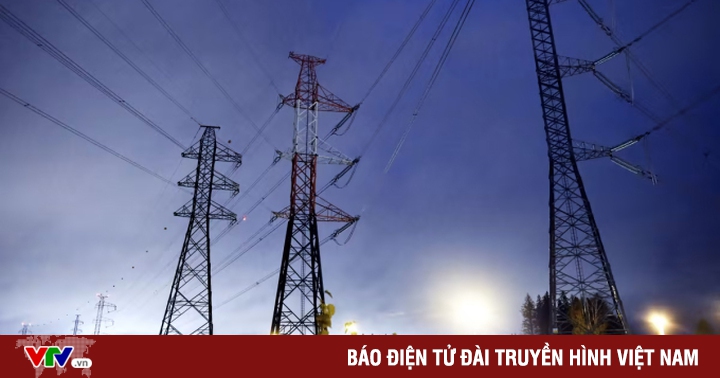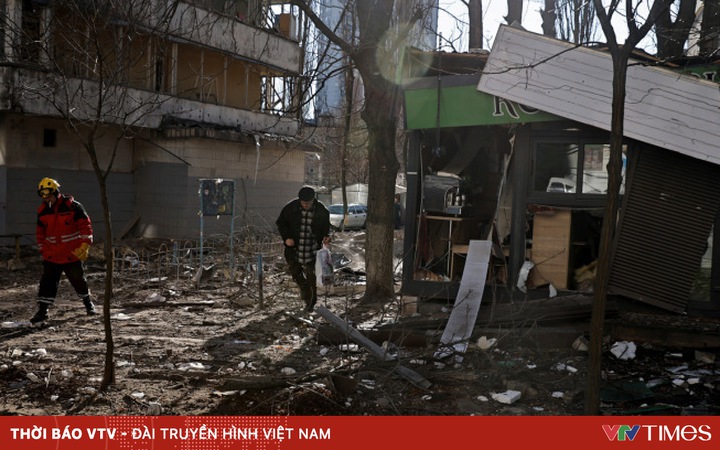As of 10 pm on March 25, the world recorded a total of 478,649,399 COVID-19 cases
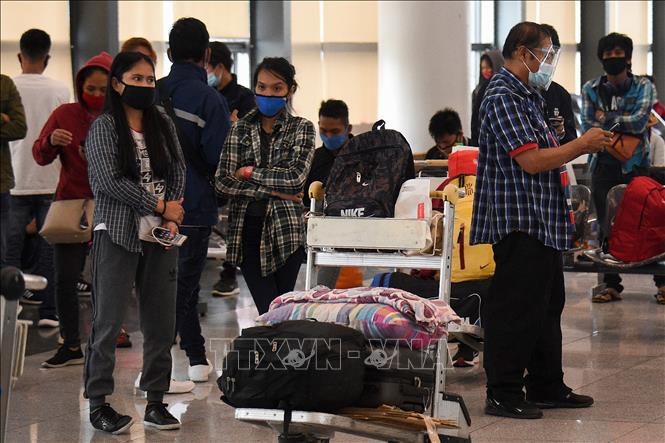
On March 25, more countries around the world announced plans to further relax epidemic prevention measures to create conditions for bringing life back to a new normal after a long hiatus. From April 1, the Philippines will restore the entry regulations as before the COVID-19 outbreak for citizens of countries that require visas and have had enough basic vaccinations.
Accordingly, foreign nationals can enter the Philippines provided that they comply with applicable visa regulations as well as entry and exit procedures. Foreigners entering the Philippines must present a certificate of having received at least 2 doses of COVID-19 vaccine, except for 12-year-old children accompanied by foreign parents who have completed the basic dose. In addition, entry must also provide a certificate of a negative RT-PCR test result valid within 48 hours or a negative laboratory antigen test valid within 24 hours prior to departure. onion. After entry, visitors self-monitor their health at the property within 7 days from the date of arrival. Last month, the Philippines reopened to foreign tourists from 157 countries and regions on the visa-free list after more than two years of closure due to the COVID-19 pandemic.
Hong Kong Special Administrative Region (China) recorded 10,405 new cases of COVID-19, the lowest level within a month. From April 1, the government of the special zone will gradually restore public services, the goal is to restore normal operations on April 21. However, due to the impact of epidemic prevention regulations, some non-emergency or non-essential services may not be resumed after that. Also from April 1, government agencies in Hong Kong will return to normal operations after a period of distance work, all employees must complete 2 doses of COVID-19 vaccine before this day.
Although the number of new cases has shown signs of decline in recent days, the Hong Kong government still urges employers to continue to allow employees to work from home as much as possible to reduce the flow of people and reduce social contact. The Hong Kong Center for Health Protection said that the epidemic is still developing seriously and it is difficult to predict the trend, so people still need to strictly follow epidemic prevention measures.
Since the outbreak of the disease in 2020, Hong Kong has recorded about 1.1 million cases and over 6,700 deaths, mainly in the 5th epidemic wave. Hong Kong has recorded a new level of cases. a record high of over 58,000 cases on March 9.
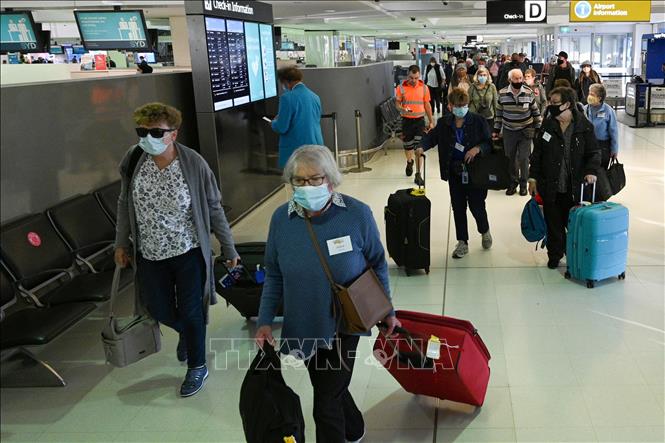
Australia’s Health Minister Gray Hunt on March 25 confirmed that the country will relax the rules applied to international entry from April 17 after the Biosecurity Emergency Declaration expires. Accordingly, Australia will abolish the requirement that travelers have to undergo testing before flying to Australia, but still need to ensure a number of other requirements such as presenting a certificate of having had two vaccinations, with vaccines. approved by Australia and wear masks on all domestic and international flights.
Regarding vaccination campaigns, on March 25, many countries also began to give recommendations on the 4th dose of the vaccine. Up to now, Israel and the UK have recommended the 4th vaccination, but limited to healthcare workers and those at risk of severe symptoms.
The Lao Ministry of Health said that the country has begun to deploy the 4th dose of vaccine for priority groups and people aged 18 and over. This is the dose that will be given to people who have had their third dose (booster) 3 months or more before. Priority groups will be ranked in order: frontline workers, people over 60 years old and those with underlying medical conditions. Two vaccines for the booster dose (3 and 4 doses) are vaccines from AstraZeneca and Pfizer. On March 25, Laos recorded 2,212 cases, down 707 cases compared to the previous day. Up to now, the total number of COVID-19 infections in Laos is 164,078.
.jpg)
The Japanese Ministry of Health, Labor and Welfare (MHLW) has decided to give the 4th dose of COVID-19 vaccine to strengthen the immunity of the people. The decision was made after an expert panel of the MHLW approved the fourth dose of the vaccine on the grounds that the vaccine’s effectiveness in preventing epidemics tends to decrease after a certain period of time. However, up to this point, the MHLW has not decided when to deploy and who will receive the 4th injection as well as the interval between the 3rd and 4th injections. As of March 23, there are over 102 .23 million people in Japan have been injected with at least 1 dose, of which nearly 100.54 million people have received the 2nd dose. For the 3rd dose alone, over 46.64 million people in this country have been vaccinated. injection, accounting for about 37% of the population.
The Australian Technical Advisory Council on Immunization (ATAGI) recommends that 4 groups of people at high health risk should receive a fourth dose of the COVID-19 vaccine, in the context that Australia is about to enter the winter with the epidemic. Severe flu usually occurs during this period. Specifically, people aged 65 and over, Indigenous Australians over 50, people in aged and disabled care facilities, and people over 16 years of age were identified as having a weakened immune system. The pandemic will be eligible for a fourth dose of the COVID-19 vaccine, also known as the “winter dose,” four months after the third booster dose. People can choose to receive one of four COVID-19 vaccines currently approved for use in Australia, including AstraZeneca, Pfizer/BioNTech, Moderna and Novavax.
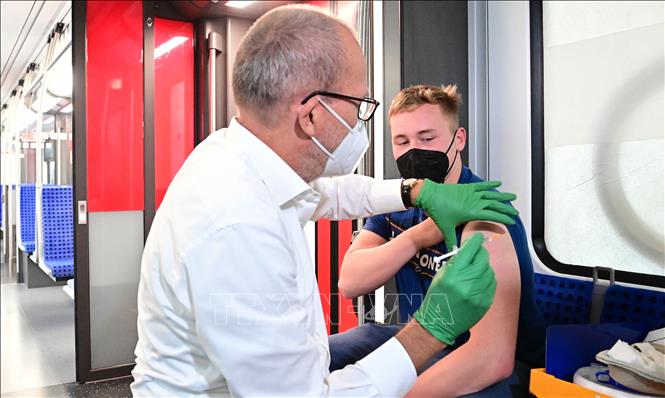
German Federal Health Minister Karl Lauterbach said that he had asked the Standing Committee on Immunization (STIKO) of the Robert Koch Institute (RKI) to come up with new recommendations for those who can get the fourth dose, in the context of The number of new infections is at a record high in Germany. Minister Lauterbach emphasized that Germany must be proactive in preventing the 4th injection when up to 90% of people recommended by STIKO to get the 4th injection (people over 70 years old, people with underlying medical conditions,…) have not done this.
He said he had asked STIKO to revise and expand its recommendation for this second booster, claiming that a fourth shot would make a difference in just one week. He also urged all unvaccinated people to get vaccinated to prevent the risk of serious illness and possibly at the expense of their lives.
at Blogtuan.info – Source: baotintuc.vn – Read the original article here

